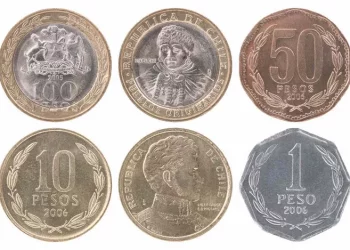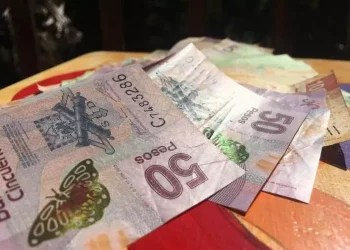At its core, an exchange rate is the numerical representation of the value of one currency in relation to another. In the context of the RMB – Naira exchange rate, it quantifies how many Nigerian Naira are equivalent to one Chinese Renminbi, or vice versa. This rate is not static; instead, it is in a constant state of flux, fluctuating within the global foreign exchange market. For instance, if the exchange rate stands at 200 Naira per RMB, it implies that to obtain one Chinese yuan, a Nigerian individual or entity would need to part with 200 Nigerian Naira.The foreign exchange market is the largest and most liquid financial market globally. It operates around the clock, five days a week, spanning different time zones as financial centers across the world open and close. Key participants in this market include central banks, commercial banks, multinational corporations, hedge funds, and individual traders. Central banks play a particularly significant role. They can intervene in the market to influence the value of their respective currencies. For example, the Central Bank of Nigeria (CBN) may take measures to impact the supply and demand of the Naira, which in turn can affect its exchange rate with the RMB.
An Introduction to the Chinese Renminbi (RMB) and Nigerian Naira
The Renminbi
The Renminbi, with the currency code CNY, is the official currency of the People’s Republic of China. Issued by the People’s Bank of China, the RMB has seen significant internationalization in recent years. China’s large and growing economy, its status as a major global exporter, and its increasing role in international trade and investment have all contributed to the rising importance of the RMB in the global financial landscape. The RMB is available in various denominations, including banknotes of 1 yuan, 5 yuan, 10 yuan, 20 yuan, 50 yuan, and 100 yuan, as well as coins of 1 jiao, 5 jiao, and 1 yuan.
The Nigerian Naira
The Nigerian Naira, denoted by the currency code NGN, is the official currency of the Federal Republic of Nigeria. Issued by the Central Bank of Nigeria, the Naira has a complex history. It comes in different denominations, such as banknotes of 50 kobo, 1 Naira, 5 Naira, 10 Naira, 20 Naira, 50 Naira, 100 Naira, 200 Naira, 500 Naira, and 1000 Naira, along with coins of 1 kobo, 5 kobo, 10 kobo, 25 kobo, 50 kobo, and 1 Naira. Nigeria, as one of the largest economies in Africa, has seen its currency’s value influenced by a range of domestic and international factors.
Factors Shaping the RMB – Naira Exchange Rate
Macroeconomic Indicators
Interest Rates: Interest rates in both China and Nigeria play a crucial role in determining the RMB – Naira exchange rate. Higher interest rates in a country often attract foreign investors seeking better returns on their investments. If the Central Bank of Nigeria raises interest rates, Nigerian – denominated assets become more appealing. As a result, foreign investors may sell their RMB – denominated assets and purchase Naira, increasing the demand for the Naira and potentially strengthening its value relative to the RMB. Conversely, if the People’s Bank of China raises interest rates, it can make RMB – denominated assets more attractive, leading to an increased demand for the RMB and a corresponding weakening of the Naira.
Inflation Rates: Inflation is another key determinant. A relatively higher inflation rate in a country erodes the purchasing power of its currency. If inflation in Nigeria is higher than in China, the Naira may depreciate against the RMB. This is because goods and services in Nigeria become relatively more expensive compared to those in China. As a result, the demand for Nigerian exports may decrease, and the demand for imports from China may increase. To pay for these imports, Nigerian importers need to buy more RMB, causing the Naira to weaken.
Economic Growth
The relative economic growth rates of the two countries also impact the exchange rate. A more rapidly growing economy usually attracts more foreign investment. If the Chinese economy is growing at a faster pace than the Nigerian economy, foreign investors may be more inclined to invest in China. This increased investment demand for the RMB can drive up its value against the Naira. On the other hand, if Nigeria experiences strong economic growth, it may lead to an increased demand for the Naira and a corresponding weakening of the RMB.
Balance of Payments
Trade Balance
The trade balance between China and Nigeria is a major factor in determining the RMB – Naira exchange rate. If Nigeria exports more goods and services to China than it imports from China, it has a trade surplus. In this case, Chinese importers need to buy more Naira to pay for Nigerian goods. The increased demand for the Naira in the foreign exchange market can cause the Naira to appreciate against the RMB. Conversely, if China has a trade surplus with Nigeria, the demand for the RMB will be higher, and the Naira may depreciate.
Capital Flows
In addition to trade – related flows, capital flows between the two countries also matter. Foreign direct investment (FDI), portfolio investment, and other capital movements can impact the exchange rate. For example, if Chinese companies increase their FDI in Nigeria, they need to convert RMB into Naira. This raises the demand for the Naira and can strengthen its value. Similarly, if Nigerian investors start investing more in the Chinese financial markets, they will need to buy RMB, which may put downward pressure on the Naira.
The Significance of the RMB – Naira Exchange Rate
For International Trade
Export Competitiveness: The RMB – Naira exchange rate has a direct bearing on the competitiveness of Chinese and Nigerian exports. A weaker Naira relative to the RMB makes Nigerian exports cheaper for Chinese consumers. For example, if a Nigerian – made product costs 1000 Naira and the exchange rate is 200 Naira per RMB, it will cost 5 RMB in China. If the Naira weakens to 250 Naira per RMB, the same product will cost only 4 RMB in China, making it more attractive to Chinese buyers. This can boost Nigerian exports. Conversely, a stronger Naira can make Chinese exports more competitive in the Nigerian market.
Import Costs: On the import side, a stronger Naira means that Nigerian importers can buy Chinese – made goods and services at a lower cost in Naira terms. This can benefit Nigerian consumers and businesses that rely on imported inputs from China. For example, if a Chinese – made machine costs 10,000 RMB and the exchange rate is 200 Naira per RMB, it will cost 2,000,000 Naira in Nigeria. If the Naira strengthens to 150 Naira per RMB, the same machine will cost only 1,500,000 Naira, reducing the cost for Nigerian importers.
For International Investment
Foreign Direct Investment (FDI)
The RMB – Naira exchange rate affects FDI decisions. A weaker Naira can make it more attractive for Chinese companies to invest in Nigeria. For instance, if a Chinese company wants to build a factory in Nigeria, a lower Naira value means that its investment in RMB will go further in terms of purchasing power in Nigeria. It can buy more land, equipment, and hire more workers for the same amount of RMB. On the other hand, a stronger Naira may encourage Nigerian companies to invest more in China as their Naira – denominated funds can buy more Chinese assets.
Portfolio Investment
In the realm of portfolio investment, the exchange rate is also a crucial consideration. Foreign investors who hold Naira – denominated financial assets, such as Nigerian stocks or bonds, will be affected by changes in the RMB – Naira exchange rate. If the Naira appreciates, the value of their Naira – denominated investments in RMB terms will increase, potentially leading to higher returns for Chinese investors.
Conclusion
Understanding the determinants and implications of the RMB – Naira exchange rate is of utmost importance. For businesses engaged in cross – border trade between China and Nigeria, accurate knowledge of this exchange rate can mean the difference between a profitable venture and a financial loss. It helps them set competitive prices, manage costs, and plan for future expansions. Investors, whether they are considering long – term foreign direct investment or short – term portfolio investments, need to factor in the exchange rate movements to optimize their returns. Policymakers in both countries rely on a deep understanding of this exchange rate to formulate effective monetary and trade policies. They use this knowledge to maintain economic stability, promote growth, and safeguard the interests of their respective economies in the global arena. In essence, the RMB – Naira exchange rate is a linchpin that connects the economic destinies of China and Nigeria, and a thorough comprehension of it is indispensable for all stakeholders to make well – informed decisions and navigate the complex and ever – changing global economic environment with dexterity and confidence.
Related topics:


























